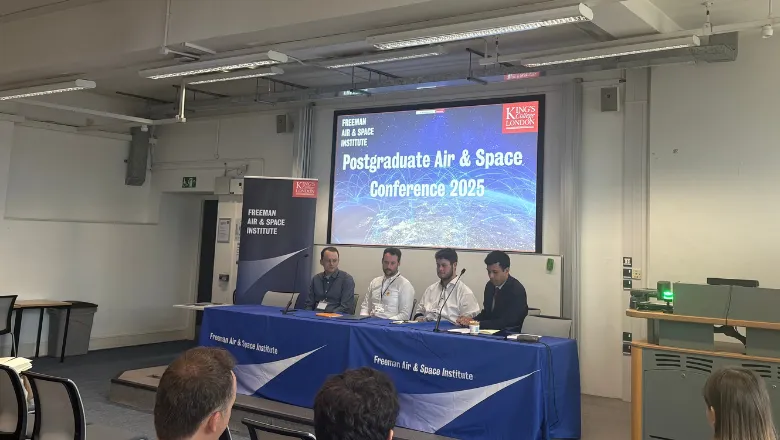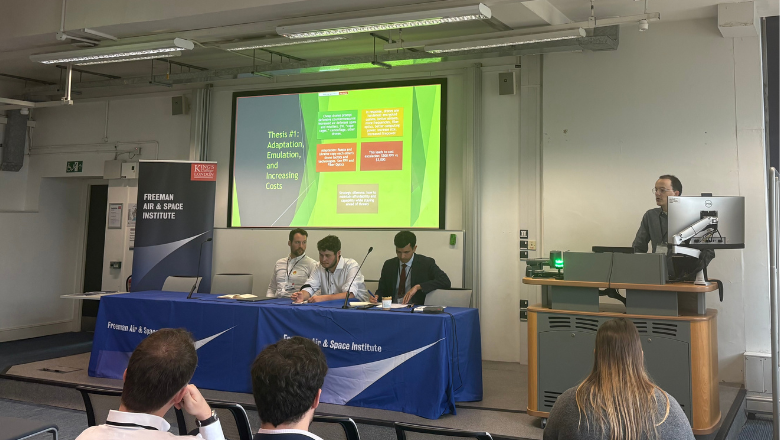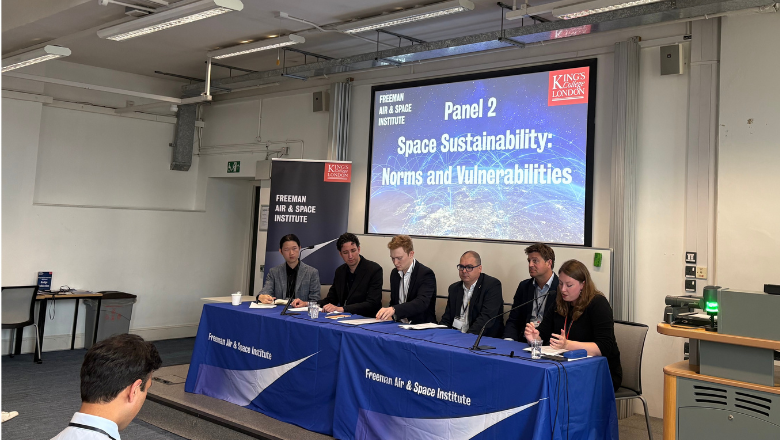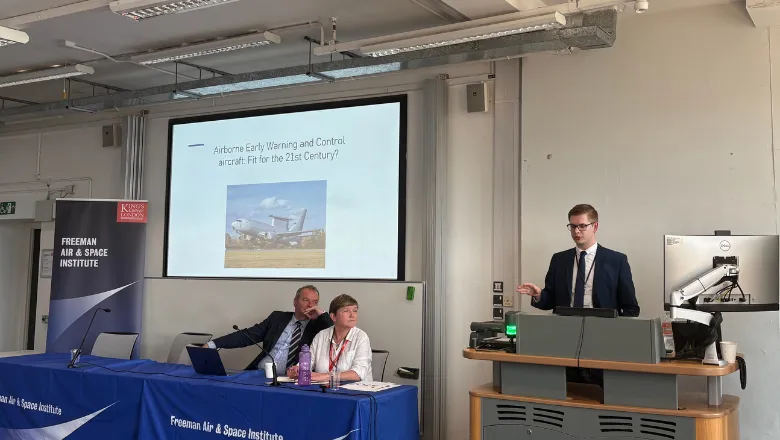20 June 2025
The Freeman Air & Space Institute hosts inaugural Postgraduate Air and Space Conference
The Freeman Air & Space Institute, King’s College London held its inaugural Postgraduate Air and Space Conference on Wednesday 11th June, bringing together emerging scholars and leading industry voices from across Europe.

The day welcomed a variety of attendees from academia, industry, policy circles, and military stakeholders, joining for an interactive day of discussion and evaluation on a range of air and space power themes.
The first panel of the day emphasised the evolving role of air power and drone technology in Russia’s ongoing war against Ukraine. Chaired by FASI PhD Candidate, Arun Dawson, the panel highlighted the strategic innovations of drone usage in the conflict, noting how the adaptive use of technology has transformed the battlefield. The discussion further analysed the opportunities and limitations for a western strategy to rebuild the Ukrainian Air Force, detailing how this could redefine the war.

Panel 2 was focused on ‘Space Sustainability: Norms and Vulnerabilities’ and welcomed FASI Research Associate Dr Julia Balm as chair. The panel examined technological vulnerability and strategic adaptation within space, adding how cyber-physical threats and dual-use space might affect infrastructure in the new space age. The discussion further highlighted the international impact with a presentation on the ‘Golden Dome’, noting how America could be further risking nuclear deterrence by militarising space.
The third panel ‘Participation in Space: Competition, Policy and Diversity’ showcased how true space sustainability isn’t solely focused on managing debris or regulating orbits, but about ensuring equitable access, inclusive policy, and collaborative frameworks that reflect a diverse range of interests and identities. Chaired by Aleix Nadal, PhD Candidate at FASI, the panel explored: competition vs collaboration, gender and outer space and finally how current small state space power is impacted in the age of great power competition.

The fourth panel concluded the day with a timely discussion around ‘The Future of Air Power: Innovation, Ethics, and Decision-Making’. With FASI’s Co-Director Dr Sophy Antrobus as chair, the panel detailed the potential impacts of using Artificial Intelligence for military decision making and how this scaling of military innovation could be stunted by cultural resistance.

In closing reflections, Dr Julia Balm summarised the day’s pivotal discussions adding “Across these 4 panels were vital key themes: the evolving character of air power in conflict zones, the fragility of sustainable space infrastructure, the role of small states, policy diversity, inclusive governance in outer space, and innovation and ethics in future airpower—where AI and decision-making intersect. Whether in the skies or in orbit, power is being redefined—not just by who possesses it, but by how it is exercised, regulated, and challenged.”
Dr Julia Balm finalised her remarks with an important reminder “To meet the demands of today’s rapidly evolving defence landscape, we need new modes of thinking and research – ones that break silos, question assumptions, and shine light on blind spots in our strategic posture. In the air and space domains especially, progress depends on dialogue that cuts across research, policy, and operational lines. So I urge you all: think practically, push beyond disciplinary boundaries, and chip away at the challenges without silver bullets.”
FASI would like to add sincere thanks to the panellists for their thought-provoking presentations. A full list of speakers can be found here: Postgraduate Air and Space Conference 2025
To stay updated on the latest research, opportunities and events from FASI, subscribe to their mailing list or contact the team at FASI@kcl.ac.uk.
